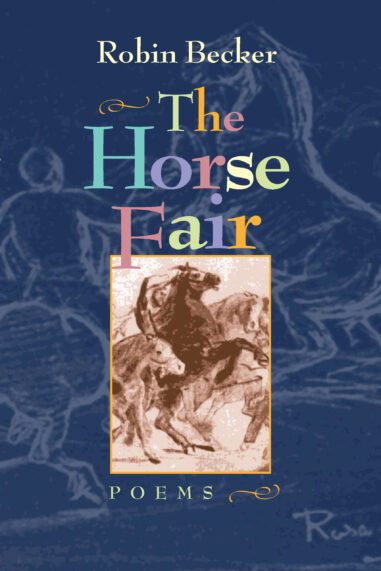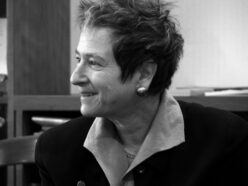In The Horse Fair, Robin Becker asks questions about citizenship and participation in the marketplaces—of bodies, of ideas, of objects—in which we function. She investigates how individuals marginalized by gender, religion, and sexual preference negotiate public and private spheres while inventing sustainable communities. Beginning with the great nineteenth-century French painter Rosa Bonheur, Becker has produced a number of multi-voiced, synthetic portraits, each within a framework of social history and a poetics of partiality—she speaks from the persona of Charlotte Salomon, child of assimilate, German-Jewish parents and grandparents and killed by the Nazis at the age of twenty-six; she appropriates passages from the Rosh Hashanah and Yom Kippur services; and juxtaposes them against stanzas that mourn her sister’s death and those that celebrate non-traditional families. Organized around the long meditations, other poems show Becker's dexterity with formal verse (sestina, sonnet, tercets) and her imaginative engagements with free verse.
The Horse Fair takes its name from Bonheur's monumental painting and serves as the vehicle through which Becker explores anti-Semitism, cross-dressing, and Bonheur's lifelong relationships with women. In Becker's hands, The Horse Fair transports us to the communal plaza where we come to barter and to buy, to study one another, to touch the foundation upon which we build our temporary habitations.


